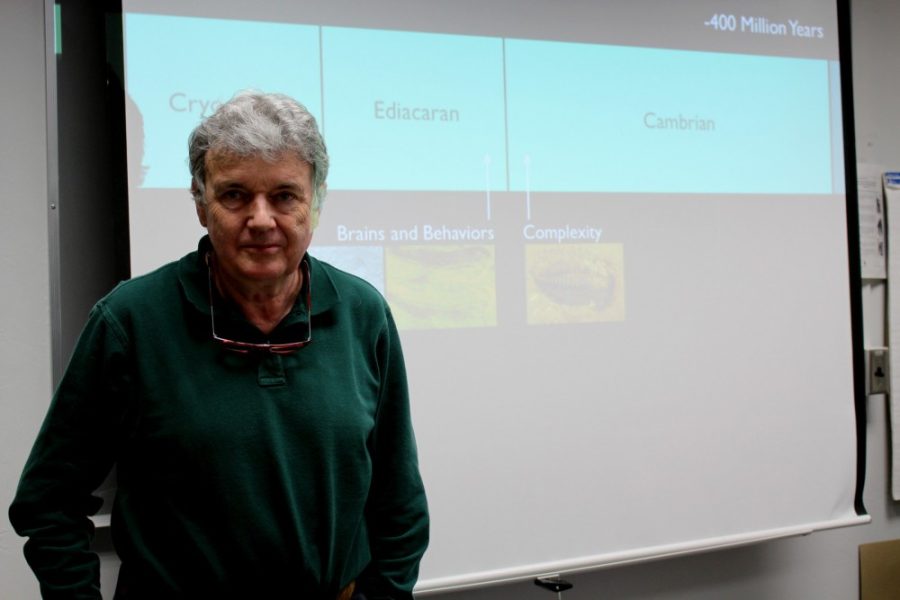Despite a clear physical difference, the human brain is more similar to that of a beetle than expected.
Today, Nicholas Strausfeld, a regents’ professor in the department of neuroscience and director of the Center for Insect Science, will show community members how similar the brain is across species and how stable it has been throughout hundreds of millions of years of evolution. Strausfeld will be the first lecturer in the UA’s 2014 Science Lecture Series: The Evolving Brain.
The lecture series, which is in its ninth year, is held at Centennial Hall every spring and is open to the general public. Community sponsors and partners help fund the lectures so they can be free for attendees.
In his lecture, Strausfeld will display images of fossilized scorpions and insects that are usually not thought to have any relation to humans or other complex creatures. His goal is to show how stable the brain is and to present theories about the possible connections between insects and humans.
While the topic is highly scientific, Strausfeld said it’s an interesting topic for the public and that a lot of illustrations and explanation will allow anyone to understand his lecture. His hope is that people leave Centennial Hall with a better understanding of their brain and of the world around them.
“It’s useful to demonstrate to the public these similarities,” Strausfeld said, “because it helps us to relate to the environment we live in.”
Joaquin Ruiz, dean of the College of Science, said “The Evolving Brain” was chosen because there’s a national drive to try to better understand the brain. Science has reached a point where research can help people understand a complex organ like the brain, he added.
“It’s very important for our community to have educated people,” Ruiz said. “If you really want to have a working democracy and if you really want to be fully functional, you have to be educated.”
Lecturers in the series will include science professors, neurosurgeons and doctors who work with MRIs. The last lecturer, William Bialek, is a mathematician visiting from Princeton University. Bialek works to understand how our brain functions and will try to explain why the human brain is far more complex than any computer, Ruiz said.
The Marshall Foundation, a private foundation that donates to non-profit community organizations and focuses on funding education and UA programs and scholarships, is one of 13 sponsors this year. Jane McCollum, general manager of the foundation, said events like the annual science lecture series help the university fulfill its mission to engage the community and share what the university is doing.
“It allows [the university] to invite people onto the campus to expose … the great programs the university has,” McCollum said. “That’s what a great university does.
“It continues to engage people after they’ve left the university.”








